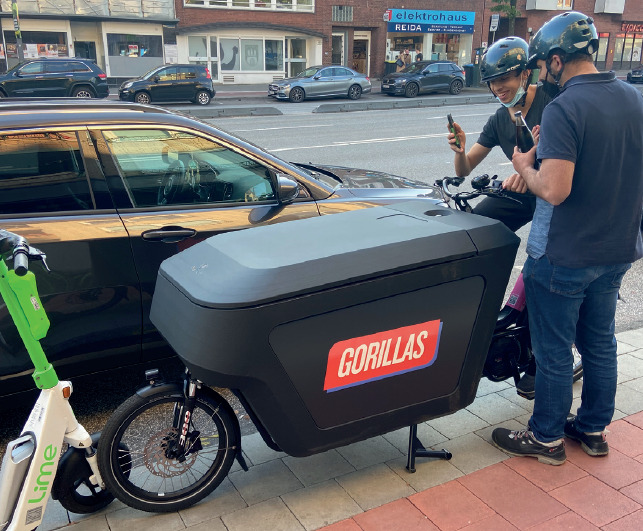
In early September, my German colleague and I spotted a row of Gorillas-branded bicycles outside a nondescript building next to an Aral (BP Germany) roadside retail site in Hamburg. The Gorillas manager showed us the order fulfilment report and the average time from the order receipt to the customer delivery was eight and a half minutes.
This neighbourhood warehouse stocked around 1,000 lines, including chilled and frozen top sellers, developed using sales algorithms. Tesco has recently announced a four-store trial with Gorillas to deliver convenience orders in 10 minutes or less.
Ultra-convenience – also known as quick commerce, instant grocery delivery, on-demand groceries and last-mile delivery – started in the US in 2013 with GoPuff, and is now the fastest-growing trend in e-commerce in the UK and across much of Europe.
GoPuff acquired the UK start-ups Fancy and Dija this year as part of its push into an increasingly crowded market for on-demand groceries. Groceries and daily essentials are delivered within 10-to-30 minutes, depending on their location.
GoPuff is valued at $15bn and Gorillas at $6.5bn after its latest funding rounds, which makes them (on paper) worth more than Sainsbury’s market capitalisation. These valuations and the growth in services in the UK, across Europe and beyond show ultra-convenience is not a fad.



Comments
This article doesn't have any comments yet, be the first!